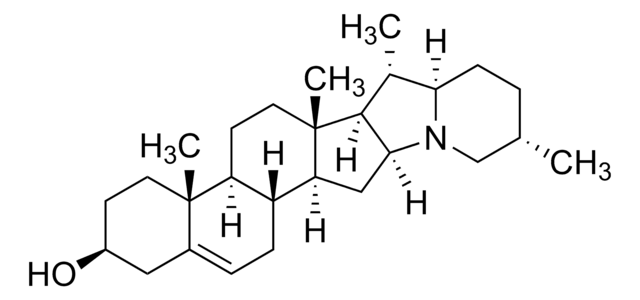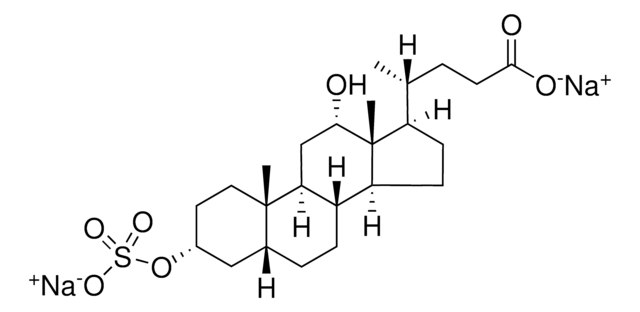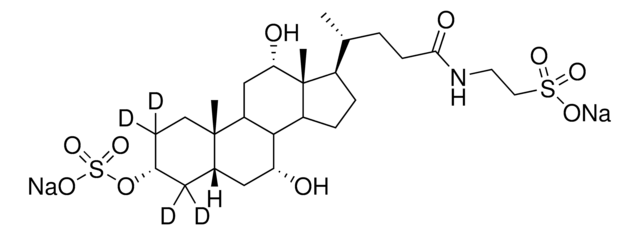SMB00807
Glycolithocholate sulfate
≥95% (HPLC)
Synonym(s):
Glycolithocholic acid 3-sulfate, Sulfoglycolithocholic acid, Sulfolithocholylglycine
About This Item
Recommended Products
Assay
≥95% (HPLC)
shipped in
wet ice
storage temp.
−20°C
InChI
1S/C26H43NO7S/c1-16(4-9-23(28)27-15-24(29)30)20-7-8-21-19-6-5-17-14-18(34-35(31,32)33)10-12-25(17,2)22(19)11-13-26(20,21)3/h16-22H,4-15H2,1-3H3,(H,27,28)(H,29,30)(H,31,32,33)/p-1/t16-,17-,18-,19+,20-,21+,22+,25+,26-/m1/s1
InChI key
FHXBAFXQVZOILS-OETIFKLTSA-M
General description
Application
Features and Benefits
- Can be used in Metabolomics and Biochemical research
- High-quality compound suitable for multiple research applications
Other Notes
Storage Class Code
11 - Combustible Solids
WGK
WGK 3
Flash Point(F)
Not applicable
Flash Point(C)
Not applicable
Certificates of Analysis (COA)
Search for Certificates of Analysis (COA) by entering the products Lot/Batch Number. Lot and Batch Numbers can be found on a product’s label following the words ‘Lot’ or ‘Batch’.
Already Own This Product?
Find documentation for the products that you have recently purchased in the Document Library.
Our team of scientists has experience in all areas of research including Life Science, Material Science, Chemical Synthesis, Chromatography, Analytical and many others.
Contact Technical Service







